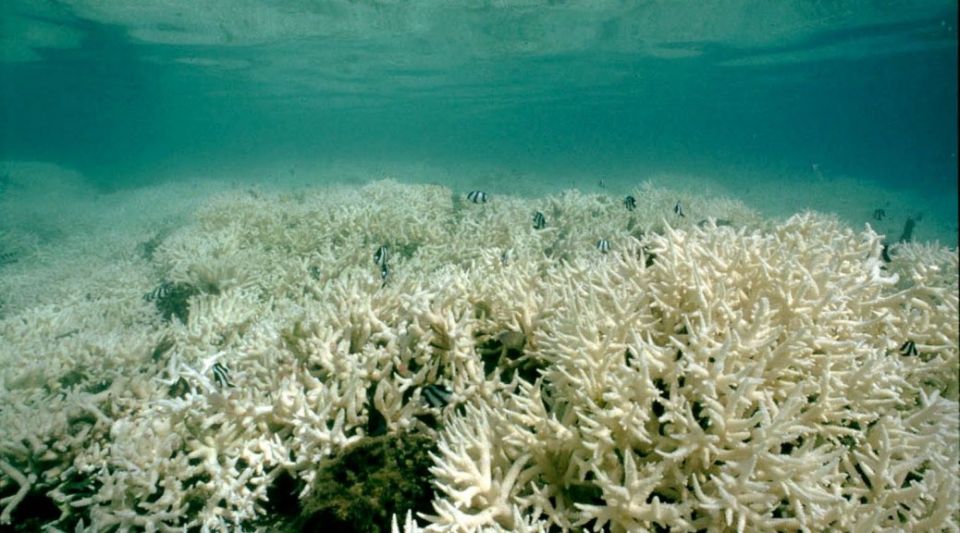Record High Sea Temperatures hit Great Barrier Reef as State Government turns up the heat on Commonwealth to address climate change
The Palaszczuk Government has renewed its call for the Commonwealth to address climate change and provide fresh funding for the iconic Great Barrier Reef, which is struggling to recover from the current mass coral bleaching event.
Speaking in Cairns, Environment Minister Dr Steven Miles said the Reef had taken a hit from global warming, yet climate change was ignored in the Federal Budget.
“And in a phone call on Friday, Federal Environment Minister Greg Hunt confirmed to me that the $171 million ‘boost’ in reef funding announced in the Budget was only new in the sense it hadn’t been used in any previous forward estimates,’ he said.
“The money had already been planned and promised in the case that the Australian and Queensland Government made to UNESCO in early 2015, when the UN was persuaded not to list the Reef as being ‘in danger’.
“Left empty handed by Malcolm Turnbull, Greg Hunt’s been forced to use funds that came from the National LandCare program and from the Green Army in order not to break his existing commitments to UNESCO.
“At least they are good at recycling.’
Dr Miles said record high sea temperatures in the Great Barrier Reef – which attracted 1.9 million visitors each year – were continuing to place stress on corals already struggling to survive and recover from bleaching.
The Bureau of Meteorology has confirmed the reef recorded its highest mean sea surface temperature for April since records began in 1900.
“In the wake of a mass coral bleaching event, a record high sea surface temperature in April is as bad as it gets for the reef,” Dr Miles said. “The high April temperatures follow the highest February and March sea surface temperatures on record.
“We know this is the wakeup call for all governments to do everything they can to protect the reef and you can’t protect the reef without doing your bit to tackle climate change.
“Commonwealth scientists recently confirmed that this extreme coral bleaching was only possible because of global warming with the El Nino weather event merely acting as a trigger,’ he said.
Overall, 93 per cent of reefs surveyed across the entire Great Barrier Reef have some signs of bleaching, however our key reef tourism destinations have been spared the worst.
“The Queensland Government remains focused on protecting the reef for the future of our environment and for the future of Queensland tourism. This Government is committed to taking action to improve the reef’s resilience, and to ensure our iconic reef remains open for business,’ Dr Miles said.


